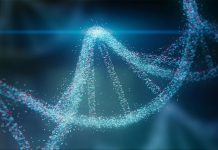
In a new study from Rutgers University and elsewhere, researchers developed a PCR test that uses molecular beacons not only to diagnose COVID-19 infection, but also to identify the specific variant causing that infection.
Their methodology is openly available so that it can be replicated by any facility that can run a PCR test.
The study is published in The Journal of Molecular Diagnostics and was conducted by Sanjay Tyagi et al.
Identifying specific strains reveals important information such as the length of incubation period, length of contagious period, transmissibility, pathogenicity, and even changes in the predominant symptoms.
Information on strain types is generally reported by the international community or a few states with large populations that perform genetic sequencing.
The deep sequencing needed to identify SARS-CoV-2 strains is accurate and can identify each mutation present in a sample, but it is costly, slow and requires specialized equipment.
Yet knowledge of the strain type provides important information for public health professionals, policymakers, and individuals.
In the study, the team used real-time PCR probes to design the Rutgers-RP RT-PCR assay to detect mutations in SARS-CoV-2 that have been shown to increase immune escape, avoid neutralization, and increase transmissibility.
They pioneered the use of molecular beacons to identify specific genetic mutations.
Nine mutations were selected for testing, and the beacon for each has differently colored dyes. Every original variant of concern—Alpha, Beta, Gamma, Delta, and Omicron—has a unique combination of these mutations.
The multiplex assay was in full agreement with results from deep sequencing, with a sensitivity and specificity of 100%.
Researchers report that the test is also very adaptable. When Omicron emerged, the investigators were able to design a beacon in less than a month to identify a mutation that is unique to Omicron and is important for immune evasion.
The investigators identified the Omicron variant in 17 of 33 additional patient samples that had been previously tested, and the results were 100% in agreement.
They say the tools we developed to track and identify new variants will be useful for this pandemic and for any unforeseen viruses or pathogens that may arise going forward.
Related: Why smokers have a lower risk of COVID-19.
Previous research from Johns Hopkins Medicine showed that a rapid antigen test for SARS-CoV-2—the virus that causes COVID-19—proved highly accurate when compared to the established standard virus detection method: the polymerase chain reaction (PCR).
This suggests that rapid antigen testing can be confidently used to screen for children and adolescents who are infected but not showing symptoms.
Such screening could help keep classrooms safer when students attend in person.
The study showed that the rapid antigen test was high in sensitivity (ability to identify people for whom the PCR test would detect a SARS-CoV-2 infection) at 92.7% for all participants and specificity (ability to identify people for whom the PCR test would not detect a SARS-CoV-2 infection) at 98% for all participants.
The sensitivity was similar for symptomatic (92.3%) and asymptomatic (92.6%) cases.
These are significant findings, because the rapid test offers advantages over the PCR test, including time savings (both during sampling and processing), cost savings and most importantly, ease of distribution and application—which can be done basically anywhere, including schools.
This can help overcome COVID testing disparities for children and adolescents in medically underserved communities.
The first step for both the PCR and rapid antigen tests is obtaining a patient sample, either from a nasal swab or a bit of saliva. The difference lies in how the sample is processed and analyzed.
A PCR test takes a tiny bit of SARS-CoV-2 genetic material from a sample and reproduces it thousands of times so it can be more easily detected.
A rapid antigen test uses laboratory-produced antibodies to seek out and latch onto proteins on the surface of SARS-CoV-2 particles in the sample.
The PCR test requires a skilled laboratory technician, special equipment, and up to an hour or more to process. Often, results are not available until one or two days after the test.
Additionally, testing on a massive scale can only be conducted at a large, centralized facility, such as a hospital laboratory.
On the other hand, rapid antigen testing uses a pre-made kit with a reagent that contains antibodies specific to SARS-CoV-2.
The test can be conducted by anyone after brief training, can be administered anywhere, and provides results in approximately 15 minutes.
If you care about COVID, please read studies about why are we seeing more COVID cases in fully vaccinated people, and common diabetes drug could strongly cut COVID-19 death risk.
For more information about COVID-19, please see recent studies about COVID-19 infection can cause pain relieve, and this depression drug may help prevent severe COVID-19.
Copyright © 2022 Knowridge Science Report. All rights reserved.



